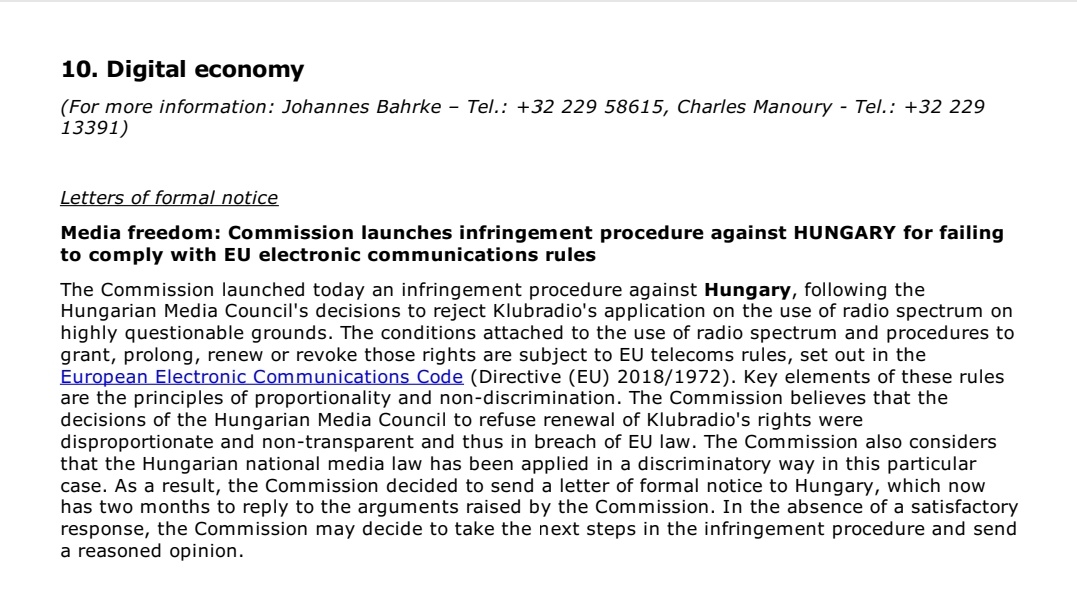The latest infringement proceedings brought by the EU Commission. Lots of developments in different areas, but here's some highlights...
ec.europa.eu/commission/pre…
ec.europa.eu/commission/pre…
Commission starts infringement proceedings against Germany due to national constitutional court refusing to accept primacy of EU law re ECB decisions 

Commission starts infringement proceedings against three more Member States re EU law on racist hate speech and Holocaust denial 

Asylum law: Commission begins proceedings against Hungary for alleged failure to comply with a recent judgment (this could lead to fines) as well as more on other alleged breaches 

Race discrimination in education: Commission starts infringement proceedings against Hungary. Perhaps concerns about Roma people in particular - @hhc_helsinki can you confirm? 

Interesting on EU citizenship: further action re Malta and Cyprus "selling" EU citizenship; two Member States brought to CJEU for refusing to let EU citizens join national political parties 

Finally, back to Hungary again. The Commission starts proceedings for breach of EU law re non-renewal of a radio licence. This station has been described as one of the last independent radio stations in Hungary: edition.cnn.com/2021/02/09/eur… 

An addition to the list of interesting new infringement proceedings. The CJEU ruled several times that data protection authorities were not independent enough as regards the previous data protection directive. This could be the first such case re the GDPR.
https://twitter.com/vmanancourt/status/1402323728881668098?s=19
• • •
Missing some Tweet in this thread? You can try to
force a refresh














